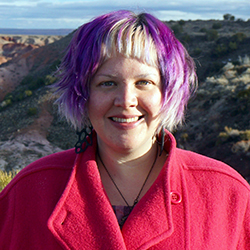Hometown: Washington, D.C.
Program: PhD in Population and Public Health

What attracted you to your field?
I’ve always been interested in health research, dating back to high school when I worked in a microbiology lab at Howard University, but I knew that I wanted to make a broader impact than I could by treating individuals alone. My years spent working in municipal government and traveling to megacities like São Paulo and Jakarta also sparked my interest in the ways in which our surroundings shape our health, for better and worse. Public health allows me to contribute to the design of cities that offer access to nature as a way of strengthening social ties, improving mental health, and supporting environmental sustainability.
In 10 years, what UBC moment will you still be talking about?
My proudest UBC moment took place off campus, on the morning that I woke up before dawn to trek to the CBC studios for a radio interview on The Early Edition. Discussing the Natural Space Index (NSI) I developed for Metro Vancouver with Rick Cluff and his callers made me realize just how much residents of this region value its natural beauty. The conversation also inspired me to share the NSI more broadly, so community members can take advantage of our many natural resources and policymakers can act to preserve and protect them for future generations.
What’s next for you?
I only recently defended my thesis, so I’m still trying to figure out what the road ahead looks like. I’m in the midst of applying for postdoctoral positions while keeping an eye out for a chance to return to a role in city planning, secure in the knowledge that whatever challenge I tackle next will benefit from the skills gained and connections made during my time at UBC.
As you look ahead, what (or who) inspires you?
As we face the twin issues of mass migration to cities and the threats posed by climate change, I’m most inspired by activists like the members of Extinction Rebellion and Greta Thunberg and her peers in the School Strike for Climate movement. Rapid urbanization can increase individual vulnerability to catastrophic weather events like flooding or slow-moving disasters like rising sea levels, but cities can also reduce energy expenditures and embed resilience. Activism must always be guided by evidence as much as by passion, and I’m excited by the opportunity to identify solutions and inform the debate.
Name one thing on your bucket list.
There are so many spots on the globe I’d still love to visit, a huge swath of them in Central and South Asia, but I’m even more excited about living and working in one of them!